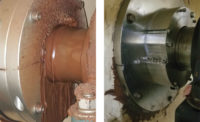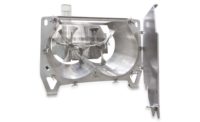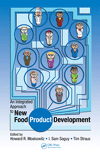Basket and tray losses cost the baking industry hundreds of thousands of dollars a year, but the problem goes much deeper than that.
In fact, the misuse and loss of plastic trays, cartons and shells used by food and beverage companies has become such a big issue that members of the baking, dairy and beverage industries met last week at the Joint Industry Returnable Asset Management Conference (JIRAMC) hosted by Rehrig Pacific Co. in Chicago.
Rehrig Pacific, a Los Angeles-based material handling company, brought the industries together to communicate and identify best practices to deter loss of reusable containers. Across various industries, the cost of the loss of these assets is frequently reflected in the retail price of goods.
The American Bakers Association estimates tray loss costs bakeries $500,000 in the first quarter, according to the ABA’s 2009 Membership Survey. Purchases of trays over the past five years have tripled, said Robb Mackie, ABA’s president and chief executive officer. Much of the loss is attributed to organized crime rings that steal the trays and sell them to recyclers. The survey identified that major metropolitan areas, such as New York City, Chicago and Detroit are experiencing the highest amount of loss.
To combat the losses, a collaborative approach was implemented by a multi-industry task force in the mid-Atlantic region, known as Control of Missing Baskets and Trays (COMBAT). The group includes H&S Bakeries, Bimbo Bakeries, Flowers Foods, Sara Lee as well as Dean Foods, Coca-Cola Enterprises and other industry companies. The companies joined together to work with customers, related industries, local law enforcement and legislators to stop loss – mostly due to theft – of plastic shells, trays, pallets and crates, explained J.R. Paterakis, vice president of marketing and sales for H&S Bakeries, Baltimore.
The task force enlisted the help of a private investigator who found several parties were stealing empty trays waiting retrieval by the companies and selling them to recyclers. COMBAT found that the biggest hurdle to stop theft were individual state laws, which may or may not consider assets stolen property. In the region, it was frequent that the trays would be trucked across state lines, which complicated the jurisdiction of a crime, explained James Rood, private investigator and owner of J.R. Investigative Services.
COMBAT’s efforts and work with industry associations developed a model law for parties to take to local legislators as well as a list of recycler best practices. The ABA is working with Illinois Senator Richard Durbin regarding the addition of the crime of transporting stolen property, including plastic bakery trays and dollies across state lines to the U.S. Senate’s Organized Retail Crime Act. It hopes its efforts will spread to other regions or through industry associations to increase the awareness of the issue.
JIRAMC also featured presentations by dairy and beverage companies. The companies discussed the effectiveness of awareness campaigns, use of GPS technology, tracking through existing direct-store-distribution handheld devices, charging deposits and creating a collaborative retail retrieval system. In addition, The Kennedy Group, Cleveland, discussed options for incorporating RFID tags onto trays. Depending on the location of the RFID sensors, the RFID tags can trace the location of a plastic tray or shell within a company’s system. The Kennedy Group is currently testing applications of RFID tags on trays for a bakery, it said. JIRAMC also featured panel discussions to develop best practices against reusable container loss.
Related Articles
Related Products
See More ProductsSee More ProductsEvents
View AllSubmit An Event-
June 9, 2009 Food Plant of the Future: Using Design to Increase Productivity and Drive Down Unit Costs
×
Get our new eMagazine delivered to your inbox every month.
Stay in the know on the latest snack and bakery industry trends.
SUBSCRIBE TODAY!Copyright ©2024. All Rights Reserved BNP Media.
Design, CMS, Hosting & Web Development :: ePublishing




